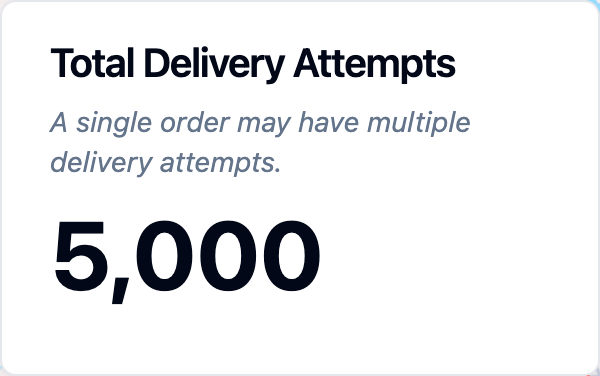Big Number
The big number component provides a prominent display of a single important metric. This is useful for highlighting key statistics like total sales, average values, or record counts that summarize your data.
Example

Configuration Options
Title
Text to be shown above the number. Used to label what the metric represents.
Subtitle
Additional descriptive text shown below the number. Can be used to provide context or explain how the metric is calculated.
Data Source
Select which data source the metric should use. This must be one of the data sources already added to your map.
Measure Field
The numeric field to calculate the metric from. This must be a numeric field from your selected data source. For example:
- Revenue
- Customer count
- Temperature
- Distance
- Population
INFO
If you don't see a numeric field in your dataset listed as a measure, it is possible that it was mistakenly assigned a string data type. You can check this by looking in the data sources menu.
Aggregation Type
Determines how the measure field values are combined into a single number. Available options:
- Minimum: Shows the smallest value
- Maximum: Shows the largest value
- Sum: Adds up all values
- Average: Takes the mean of all values
- Count: Shows the number of records
TIP
The big number component automatically updates when you filter the map using other components, making it easy to see how metrics change for different selections of your data.